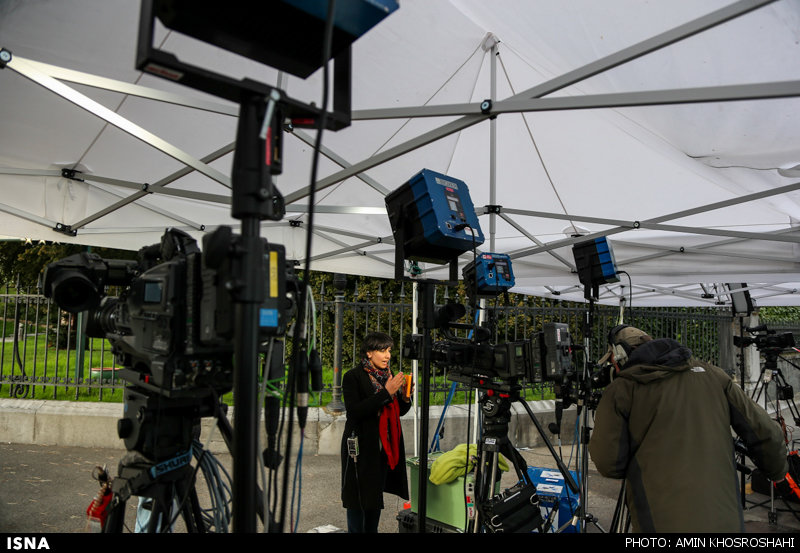Iran negotiations broadcast around-the-clock by U.S. international media networks

As negotiators in Lausanne, Switzerland pulled all-nighters to work out a framework for a nuclear deal between Iran and the United States in the run-up to the March 31 deadline, U.S. international media journalists worked around the clock to keep Iranians appraised of the latest news surrounding the talks.
Voice of America’s Persian Service offered 24/7 reporting on the negotiations — with broadcasters and technicians working night and day to provide coverage from Washington and Lausanne. Hannah Kaviani, Radio Free Europe/Radio Liberty’s Radio Farda correspondent in Switzerland also covered the story in detail 20 hours per day, supported by Radio Farda staff in Prague.
VOA and Radio Farda’s reporting was critical to keeping Iranians informed about the status of the nuclear talks. The dearth of independent media in Iran meant that international broadcasting networks were the best source for Iranians to receive objective and balanced coverage of all sides of the negotiations. VOA and Radio Farda offered views and analyses from a broad spectrum of sources throughout the process, interviewing Alan Eyre, the State Department’s Persian language spokesperson, Nobel Peace Prize winner Shirin Ebadi, and numerous other experts from the U.S., Iran, Israel and Europe.
When a nuclear deal was reached on April 2, VOA and Radio Farda offered live coverage of the announcement. VOA’s Persian Service broadcast live with translation into Farsi — and simultaneously streamed online — a five-hour TV special featuring press conferences by President Barack Obama, Secretary of State John Kerry, Iranian Foreign Minister Mohammad Javad Zarif, and High Representative of the European Union Federica Mogherini.
The networks also provided a platform for Iranians to give their views on the changes ahead. Radio Farda received almost 100 voice messages per day from Iranians, and aired listeners’ views regarding the negotiations. Following the announcement of an agreement, a two hour live call-in-show, presented by the editor-in-chief of Radio Farda, featured listeners from Iran as well as experts and Radio Farda’s correspondent from Lausanne. Following VOA’s TV special on the agreement, calls from Iran came flooding in praising VOA’s extensive coverage of the talks and continuous breaking news updates across all platforms.
On Friday, VOA and Radio Farda resumed regular programming, which included regional and U.S. reaction to the agreement. The networks are continuing to provide updates as events surrounding the deal to curtail Iran’s nuclear program progress, with the Senate Foreign Relations Committee preparing to vote in the coming weeks on a review of the agreement.
The BBG’s other networks also covered the negotiations, with MBN’s Alhurra and Radio Sawa reporting the news to Arabic-speaking audiences in the Middle East and North Africa, RFA connecting the Iran nuclear framework to possible implications for North Korea, and Radio/TV Marti keeping Cubans appraised of this important step in U.S. foreign policy.
